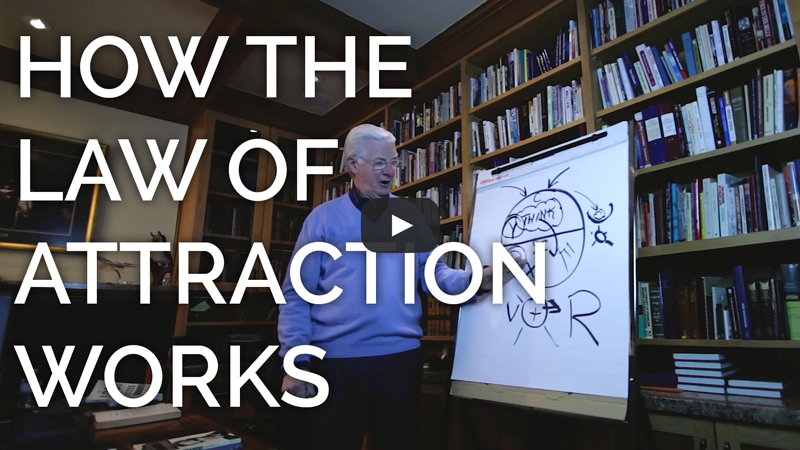How do you spend your days?
What kinds of foods do you eat?
How many hours do you sleep each night?
I ask because your decisions define every aspect of your life. The health of your mind and body, the type of relationships you develop, your social life, the amount of money you make… all are a result of the decisions you did—or did not—make in the past.
Here are a few reasons why you might find it difficult or fail to make a decision:
- You procrastinate.
- You’re afraid of failing.
- You’re not inspired.
- You just go along with the crowd.
- You’re overthinking it.
But did you know that people who experience extraordinary financial success have a habit of making decisions quickly?
In Think and Grow Rich, Napoleon Hill wrote:
Analysis of several hundred people who had accumulated fortunes well beyond the million-dollar mark disclosed the fact that every one of them had the habit of reaching decisions promptly, and changing these decisions slowly, if and when they were changed.
People who fail to accumulate money, without exception, have the habit of reaching decisions very slowly, if at all, and of changing these decisions quickly and often.
Of course, your ability to make decisions don’t just affect your income; it’s reflected in the results you get in every area of life.
7 Ways to Improve Your Decision Making
Great achievers spend less time thinking about the potential repercussions of their decisions and spend more time acting on them.
So, here are 7 tips to help you achieve more—and lead a more rewarding life—by becoming more proficient at making decisions:
1. Make It Urgent (Overcomes Analysis Paralysis)
The idea behind this tip is to force yourself into action. Any time you’re mulling something over, set a timer for a few minutes (one to five should be enough). The time limit forces you to quickly assess the pros and cons and listen to your gut to come to a swift decision.
2. Focus on One Step at a Time (Alleviates Fear of Change)
Trying to do something you’ve never done before is scary. And it can feel overwhelming, especially when you look at the big picture, and you try to figure out all the steps you must take to get where you want to go.
It’s better to decide what you want, believe in yourself (through study), and then live and act in the moment by focusing on the next step in the process. Doing this for every step makes change much more manageable and less intimidating.
3. Embrace Action (Overcomes the Fear of Failure)
One of the primary reasons you may be reluctant to decide is that you’re afraid it will lead to bad results. So, you may question every aspect involved in the decision. Ultimately, you may end up not deciding at all, electing to stay “safe” where and how you are.
Instead, you should see delaying the decision as worse than making a bad decision. Bad decisions can be recovered from and learned from, but not deciding all means you don’t get a chance to grow.
When you’re slow to decide, or you avoid making a decision because you’re afraid of failing, you allow someone or something to make that decision for you.
4. Go for 80/20 or Even 70/30 (Eliminates Procrastination)
If you’re in the habit of waiting until you get all your ducks in a row or the right time to decide on something, you’re making a mistake.
There will never be a perfect time, so rather than waiting for the impossible, do what effective and efficient decision makers do—leap before you before you’re ready, trusting that you’ll grow wings along the way.
5. Get Clear (Trounces Lack of Inspiration)
If you find it difficult to make a decision, it may be because you’re not clear on what you want. Take the time to get clear on your goal or desire, and it will make you less likely to ask for others’ opinions. You won’t ask, “What should I do?” Instead, you’ll follow your heart and your gut, and make your decision accordingly.
When you know what you want, and you’re inspired to get it, you’ll find it easier to make swift decisions and then act on them quickly.
6. Have a Strong Why (Overcomes Flip-Flopping)
Another problem you may have is changing your mind once you’ve decided. That’s far less likely to happen when you have a strong reason why.
Let’s say you decide to stop smoking. Which of the following is a stronger why?
You’re doing it because you want to be healthier. Or you’re quitting because you want to be there to walk your daughter down the aisle.
In the first case, your why is noble, but it is also impersonal, general, and ultimately weak. In the second, your why is personal, specific, compelling, and capable of withstanding even the toughest of temptations.
The power of a made-up mind, backed by strong desire, is generally enough to keep you from flip-flopping or changing your mind once you’ve made a decision.
7. Visualize Your Future, Successful Self (Overcomes Conforming to Others’ Opinions and Desires)
If you want to make successful decisions, take a moment to think about what success means to you. How do you define personal and professional success? Write your answer down in detail in a journal or on a piece of paper.
Next, get into a relaxed position, close your eyes and allow your mind to wander into a daydream where you visualize your ideal, future self.
What do you see, hear, smell and feel? Do you have a healthy and happy glow about you? Are you in the best shape ever? Are you in love? Do you have a supportive community and a fun circle of friends? Are you financially independent? Do you get along well with your business partners, colleagues, and employees?
When you build a vivid, positive mental image of you living your ideal life, you begin to believe you’re capable of anything you want. You CAN have perfect health, happiness and wealth. And when you believe, rather than conforming to what others want or expect from you, you make decisions that are aligned with realizing what you truly want.
Create or Disintegrate
A very basic law of the universe is “create or disintegrate.” Indecision causes disintegration.
People who struggle to make decisions run the risk of letting their lives run them, rather than them running their own lives.
You can virtually eliminate conflict, confusion, and frustration in your life by becoming proficient at making decisions. Decision-making brings order to your mind, and of course, this order is then reflected in your objective world—your results.
So, keep these tips in mind the next time you feel like you want to back away from a decision. One of the worst things you can do is let someone else or circumstances make the decision for you.
To more and better,
Sandy Gallagher








